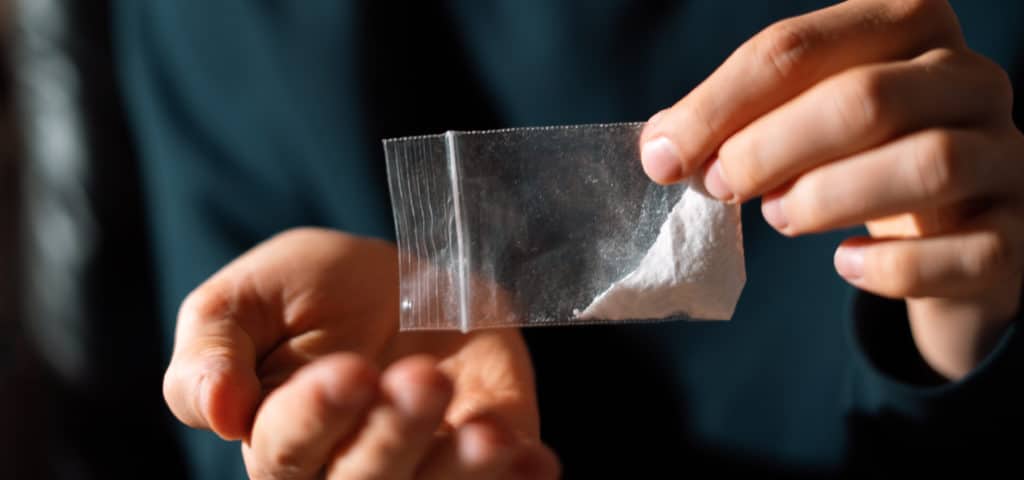LSD is a psychedelic drug that can cause hallucinations, delusions, and drastic behavioral changes. But is LSD Addictive? Although the substance is not physically addictive, LSD can cause several long-term health problems, psychological dependence, or death. LSD (lysergic acid diethylamide), first synthesized in 1938, is a highly potent hallucinogen.
It is synthetically made from lysergic acid, which is found in ergot, a fungus that grows on rye and other grains. It is so potent its doses tend to be in the microgram (mcg) range. Its effects, often called a “trip,” can be stimulating, pleasurable, and mind-altering or lead to an unpleasant, sometimes terrifying experience called a “bad trip.”
LSD is a powerful synthetic hallucinogen. The psychedelic drug can cause visual hallucinations and change a person’s mood, emotions, and perception. Because it has a high potential for abuse and no accepted medical use, LSD is illegal in the United States.
It can damage the body, alter the mind and cause volatile behavior that threatens the safety of the LSD user and others. Chronic LSD use can cause long-term health problems such as hallucinogen persisting perception disorder. The disorder causes flashbacks to spontaneous visual distortions that may reoccur months to years after quitting using LSD. [1]
An illegal drug with no accepted medical uses in the United States, D-lysergic acid diethylamide, or LSD, is a hallucinogenic drug that alters perceptions and the senses. The National Institute on Drug Abuse (NIDA) classifies it as one of the most powerful psychedelics, or mood-altering, chemicals that are abused. [2]

LSD is in Schedule I of the Controlled Substances Act, the most criminalized category for drugs. Schedule I drugs are considered to have a “high potential for abuse” and no currently accepted medical use; however, LSD has been used in many therapies and shows some success in treating depression and anxiety. There is even some evidence to suggest that LSD also has the potential to treat PTSD and addiction. Although LSD has been known to have some positive side effects, the drug affects everyone differently. In some cases, serious physical and psychological effects may occur.
Is LSD Addictive and How Is It Abused?
LSD, also called acid, is a white or transparent crystal most commonly sold on the street as a tablet or capsule. The odorless drug can be crushed into a powder, dried on gelatin sheets, added to sugar cubes, or dissolved in water. In powder or liquid form, the drug can be inhaled or injected. Powdered LSD can also be compacted into small balls known as microdots. In liquid form, it can transfer the substance onto an absorbent paper called a blotter. The drug is usually divided into tabs, which are small single-dose squares. Acid tabs or pills contain 20 to 80 micrograms of LSD. They can be swallowed, licked, or chewed.
People develop a tolerance to LSD with repeated use. This means they need to use the drug more frequently or in higher doses to achieve the desired high. However, abusing acid does not lead to drug addiction because it does not cause physical cravings or compulsive drug-seeking behavior.
Who Abuses LSD the most?
Adolescents abuse LSD more than any other age demographic, according to the 2016 National Survey on Drug Use and Health. The report found that about 209,000 people aged 18 to 25 were current LSD users in 2016. Acid is common at dance clubs, music festivals, and underground parties called raves. [3]
Is LSD Addictive? Effects and Abuse
This drug is known for the profound changes it causes in consciousness and perception. During a “trip” users experience a wide variety of effects. These most often include visual and other sensory distortions, changes to thought processes, intense emotions, and, for some people, surprising new insights and life revelations. LSD’s effects typically last around 8-10 hours, with peak effects occurring 4-6 hours after ingestion, so you can conclude if is LSD addictive?. Common side effects include:
- Synesthesia (e.g., “hearing” colors and “seeing” sounds)
- Dissociation
- Anxiety
- Impaired depth perception
- Panic attacks
- Flashbacks
- Depression
- Sensory enhancement
- Delusions
- Sweating
- Alienation
- Dry mouth
- Visual hallucinations
- Tremors
Tolerance to LSD develops quickly; if a specific dose is taken every day for 3 consecutive days, no reaction will occur by the third day. Users who abuse the drug regularly must take progressively higher doses to achieve the same state of intoxication that they have previously experienced. This practice is particularly dangerous; when the dose amount increases, so do the chances of the user experiencing a “bad trip” and negative psychological side effects.
The risk of overdose is very low with LSD, and the risk of fatal overdose is essentially nonexistent. LSD is far from safe, however, especially considering the risky behaviors and side effects that can occur as a result of use. Users may experience trips lasting for 12 hours or more, often exhibiting low inhibition. Users may also have strong reactions to the drug’s hallucinatory effects.

This may lead to dangerous actions and injury along with social, legal, and professional consequences. LSD is also dangerous when mixed with other drugs, especially Antidepressants such as Lithium. The most serious effects of LSD are likely to only happen after large and frequent doses, but they can be life-threatening. Extreme side effects may include hyperthermia, suicidal thoughts, and psychosis.
The user may also experience the impaired depth and time perception, with a distorted perception of the size and shape of objects, movements, color, sound, touch, and body image. In addition, sensations may seem to “cross over,” giving the feeling of hearing colors and seeing sounds. These changes can be frightening and can cause panic. Some LSD users also experience severe, terrifying thoughts and feelings, fear of losing control, and fear of insanity or death.
Acute, disturbing psychological effects are known as a “bad trip.” These experiences are lengthy, with the effects of higher doses lasting for 6 to 12 hours, and it may take 24 hours to return to a normal state.
What are LSD Overdose Risks?
The risk of overdose can be low with LSD in comparison to other drugs. However, it is possible to have an overdose from this substance. An acid overdose occurs when a person takes a dangerous amount of the drug. Overdoses require immediate medical attention. Excessively high doses of the drug aren’t fatal, but they can cause psychosis and a more intense psychedelic experience. In addition, some people experience a “bad trip,” which can cause confusion, panic, anxiety, or helplessness that lasts several minutes or hours.
Overdose Symptoms
- Violent or Hazardous Behavior
- Psychosis
- Seizures
Taking LSD can be dangerous, but combining it with other substances can lead to severe health consequences. For example, mixing LSD with alcohol can exacerbate hallucinations and cause risky behavior that leads to injury or death.
Managing LSD Abuse
Hallucinations can lead to violent behaviors. Therefore, when assisting high on LSD, it is best to keep them in a safe environment under direct supervision. This ensures that they do not harm themselves or others.
A low dose of a short- or intermediate-acting benzodiazepine may control anxiety and increase sedation in LSD users. However, if they experience depressive symptoms, they may need antidepressant therapy. Individuals experiencing psychotic episodes may require treatment with antipsychotic medication.
People who are psychologically dependent on acid should seek treatment or self-help support. In addition, groups such as Narcotics Anonymous encourage people to participate in supportive discussions that teach ways to overcome substance abuse.
Health Hazards of LSD Abuse
Under the influence of LSD, the ability to make sensible judgments and see common dangers is impaired, making the user susceptible to personal injury or death. After an LSD trip, the user may suffer acute anxiety or depression and may also experience flashbacks (also called hallucinogen persisting perception disorder), which are recurrences of the effects of LSD days or even months after taking the last dose.
A flashback occurs suddenly, often without warning, usually in people who use hallucinogens chronically or have an underlying personality problem. Healthy people who only use LSD occasionally may also have flashbacks. Bad trips and flashbacks are only part of the risks of LSD use. LSD users may also manifest relatively long-lasting psychoses, such as schizophrenia or severe depression.

Treatment For LSD Use
Once a decision is made to obtain treatment, there are several steps to take.
- Speak to a healthcare provider to help direct you to reliable sources of help and monitor your progress.
- Talk therapy (behavioral counseling) and group counseling may be an option to help you understand your behaviors and why you continue to use LSD.
- Keep your appointments and follow your provider’s treatment plan. Consider including trusted family or friends in your treatment plan.
- Take care of yourself: Exercise, eat healthfully and control your stress level. Surround yourself with supportive people.
- Medical therapy may be needed to treat symptoms due to drug use, such as anxiety, depression, or schizophrenia.
- Work to find new hobbies and interests that will take your mind off of drug use. Consider a volunteer opportunity.
- Each day makes an effort to stay away from people who abuse drugs, even if they are former friends.
Reclaim your life from LSD Addiction, LSD Therapy California,
Finally, is LSD Addictive? LSD Abuse is a condition that can cause major health, social, and even economic problems that should not be taken lightly. We Level Up Treatment Center can provide you, or someone you love, the tools to recover from LSD Abuse with professional and safe treatment. Feel free to call us to speak with one of our counselors. We can inform you about this condition and give you the clarity to questions such as “Is LSD Addictive?” by giving you relevant information. Our specialists know what you are going through. Please know that each call is private and confidential.
Sources
[1] We Level Up Treatment Center – ‘Is LSD Addictive’
[2] The National Institute on Drug Abuse (NIDA) – ‘Hallucinogens DrugFacts’
[3] SAMSHA – 2016 National Survey on Drug Use and Health
